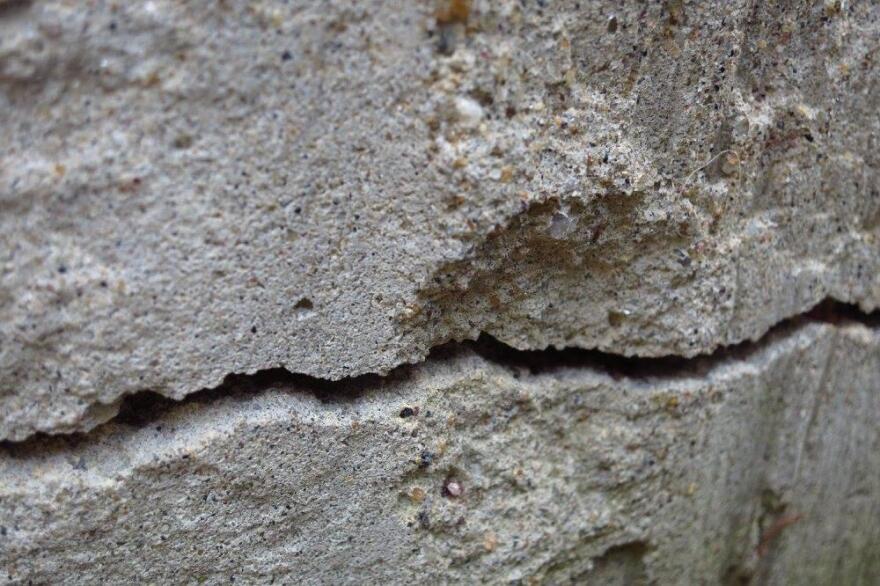Homeowners whose foundations are crumbling because of faulty concrete pleaded with lawmakers Tuesday for help.
Two legislative committees heard testimony from homeowners, attorneys, and town officials. The faulty foundations have been found in hundreds of homes in the eastern portion of the state; the problem was traced back to a mineral present in the concrete which causes it to degrade.
The governor’s office has estimated that more than 30,000 homes may eventually be found to be affected.
Maggie Perracchio has lived in Willington for 25 years. She was advised in the fall of 2015 by a structural engineer that she should leave her home, but she’s still there.
"I can actually stand in my home and look outside through the walls as they separate in the corner of my house," she told lawmakers. "I have windows that don’t close. I have doors that don’t shut. I have floors that are separating."
There are currently six bills before the legislature that deal with the problem in different ways.
Governor Dannel Malloy has proposed a low-cost loan program for affected homeowners, but many have rejected that idea, saying they shouldn’t have to pay twice over for something that was defective from the start.
State Senator Steve Cassano, co-chair of the Planning and Development Committee, described the issue as "just overwhelming."
He spoke of the need to persuade other parts of the state to take a share in the burden of solving the problem.
"The other 130 towns in the state of Connecticut have no idea what we’re talking about. People feel it has nothing to do with the rest of the state," he said. "We need people to understand that this is a statewide crisis. It is something that we need to do, collegially, as a state."
Lieutenant Governor Nancy Wyman agreed. She is a resident of Tolland and said many of her neighbors are affected.
"When the economy goes down and people walk away from their homes, this is devastating for the rest of the state also," she said.
The Capitol Region Council of Governments represents many of the affected towns. Steve Werbner is the town manager of Tolland, and co-chair of the CROG’s committee on crumbling foundations. He spoke against a measure that would see the municipalities themselves take on the issue.
"We cannot support the concept of having local municipalities bond or create funds to address this potentially billion dollar problem locally," he said. "This is a problem akin to a major natural disaster."
And he called for immediate action, as towns see their grand lists shrink and their mil rates spike.
"Resist doing any further studies," he said. "The cause of the problem is known. We’ve established a template for relief. We’ve got to move forward."
Among other revenue ideas, CROG wants to establish a relief fund through a surcharge on insurance policies statewide for the next seven years.
Lisa Pelligrini, first selectman of Somers, also called for legislation to force insurance companies to cover the problem.
"They are set up perfectly to deal with this as they can recoup their costs over the years through higher premiums - it’s their business model," she said.
Some small community banks are also beginning to see the effects of the crisis. Dave Weise, general counsel for the CT Bankers Association, said some of his members hold tens of thousands of loans in eastern Connecticut, and have no idea how many may be affected.
But homeowners are beginning to raise the issue with lenders.
"Their homes are worthless, which means our collateral is worthless," said Weise. "A lot of these people are unable, or in some cases unwilling to repay their mortgage loans, on the theory of, you don’t throw good money after bad."
Homeowner Linda Tofelowski described herself to lawmakers as "patient zero" - her's was the very first home to be identified as suffering from the problem.
She told the hearing that she warned state officials of the problem more than ten years ago.
"The state neglected to protect the consumer, with no investigations, warnings, or shutting down the source of the defective concrete back then," she said. "If the state had protected its consumers back in 2003, we all wouldn't be here right now. We have been waiting way too long."





